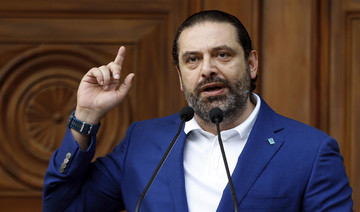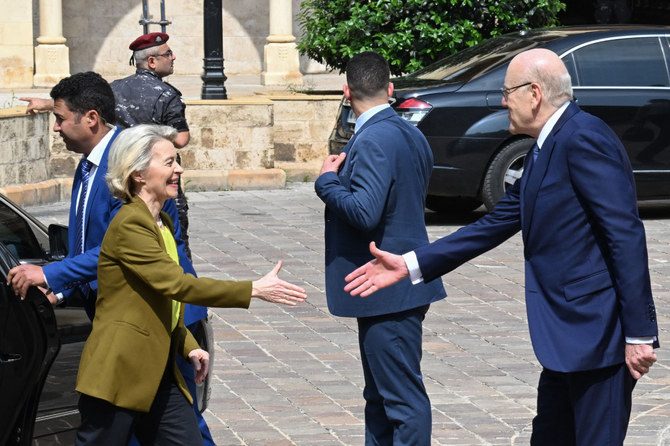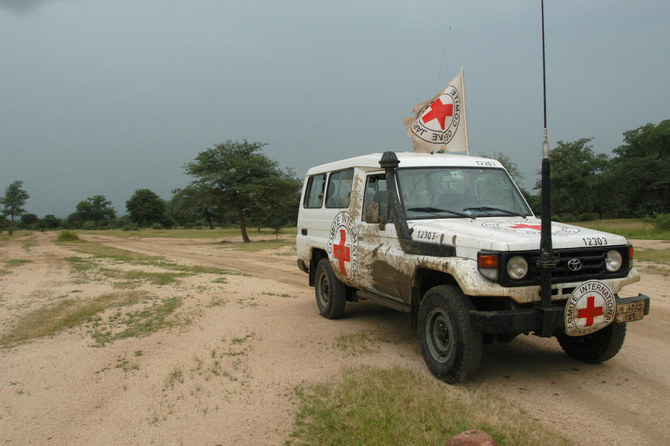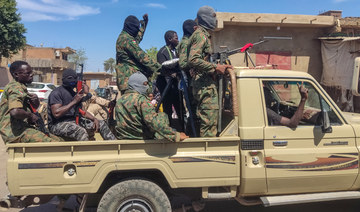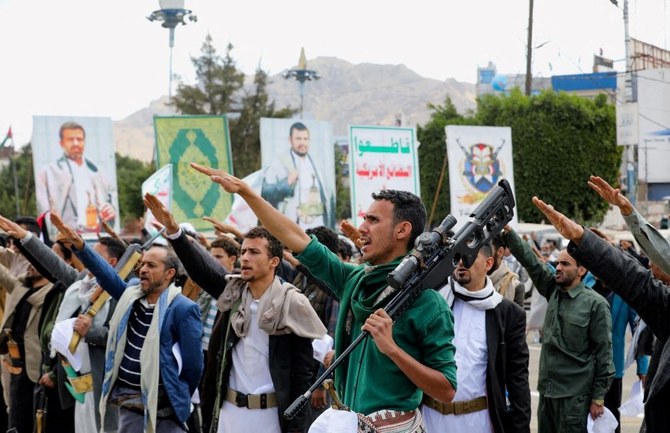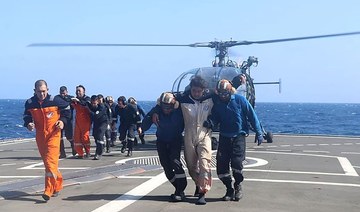BEIRUT: Despite a spate of resignations and sackings, a senior member of Lebanese Prime Minister Saad Hariri’s Future Movement discounted fears that the political bloc is facing a crisis.
Moustafa Allouch, a member of the Future Movement's political bureau, said the spate of resignations and sackings in the party are “part of the re-evaluation process carried out in the light of the recent parliamentary elections.”
As soon as the election results were announced last Tuesday, Future Movement leader and Lebanon’s Prime Minister Saad Hariri said: “Our political movement’s performance level was not as required and we will deal with this matter internally.”
The Future Movement is the largest Lebanese party, formed after the assassination of the late Prime Minister Rafik Hariri in 2005, and the majority of its members and supporters are from the Sunni sect.
Describing the movement, Allouch said: “This is neither an ideological nor a sectarian party. Its ambition is to improve people’s lives in Lebanon. It’s a patriotic party that seeks to have a liberal nature.”
The first outcome of the movement’s re-evaluation process was Nader Hariri stepping down as head of the PM’s office on Saturday evening.
Nader Hariri announced his resignation from “the responsibilities he assumes” and the PM accepted it, thanked him for his efforts during his tenure and wished him success in the future.
Saad Hariri decided to appoint Mohammed Mneimneh, a former close associate of Rafik Hariri, as acting chief of staff to assume Nader’s responsibilities.
On Sunday, the Future Movement announced that “the general coordinator for elections, Wissam Hariri, and the head of the follow-up department at PM Hariri’s office, Maher Abu Al-Khudoud, were relieved of their duties.”
Allouch told Arab News: “What’s happening inside the Future Movement is not a crisis, and if there were a crisis, there wouldn’t be a re-evaluation process. It is normal for a party to admit that errors have taken place — some of which were intentional — and to work on making changes.”
Allouch pointed out that the errors were in the management of the electoral process in certain regions and were not innocent mistakes. He also said that some errors were “the result of negligence.” He said that the mistakes happened in Beirut, Mount Lebanon and Bekaa.
Allouch confirmed that no slander targeted the Future Movement list’s candidates and that “Hariri went through the elections without exploiting money or seeking support.”
He stressed that: “What’s happening inside the Future Movement is a strictly organizational matter and no interference from an outside party has taken place.”
He also pointed out that he believes “accountability and re-evaluation make people convinced of the movement’s credibility and that the Future Movement is ready to hold itself accountable.”
On the responsibility of Nader Hariri in the re-evaluation process, Allouch said: “Maybe there are personal reasons that drove Nader Hariri to resign, and these may be his future choices.”
Nader Hariri is Saad Hariri’s cousin — the son of his aunt, MP Bahia Hariri. He is known as the keeper of PM Hariri’s political secrets and one of the very few who took it upon themselves to protect the secrecy of the political deliberations.
On the protests carried out on social media websites by people who worked on the Future Movement’s election campaign and did not receive their payments, Allouch told Arab News: “Everything that is documented will be paid while fake claims won’t be paid.”
The Future Movement election results did not match the expectations of Saad Hariri. It won 21 seats in the Parliament but also lost votes.
In Beirut — and specifically in Beirut I — the candidate of the Future-backed Armenian Hunchakian Party, Sebouh Kalpakian, was defeated. In Beirut II, Hezbollah’s candidate, Amin Sherri, won more preferential votes than Hariri.
Hariri's electoral list did not won more than six seats (out of 11), and among the victors was an MP for the Progressive Socialist Party, which is headed by Walid Jumblatt.
On the other hand, the electoral list of the alliance of Hezbollah, the Amal Movement, the Free Patriotic Movement and Al-Ahbash won four seats, while the National Dialogue Party, led by businessman Fouad Makhzoumi, won one.
PM Hariri was unable to secure the victory of the candidate on his Beirut II list, Zaher Eido, the son of former MP Walid Eido, who was assassinated in a car bomb in 2007.
In the Sidon-Jezzine district in southern Lebanon, the Future Movement lost the second Sunni seat in Sidon to Hezbollah ally Osama Saad. The movement also lost the Catholic seat in Jezzine to the Free Patriotic Movement.
In Zahle in the Bekaa, the Future Movement won the Sunni seat but lost its battle for the Shiite and Armenian seats to a list backed by Hezbollah and the Amal Movement.
In the Western Bekaa, the seats were divided equally — the Future Movement’s list won three and the list of Abdul Rahim Murad, an ally of Syria, won three. The winning Sunni candidate on the Future Movement’s list was not MP Ziad Qadri, but Mohammed Qar'awi, who in 2009 was a candidate on Murad’s list.
In the north, where most of the Future Movement’s supporters are based, its Koura District candidate, Nicolas Ghosn, lost.
In Tripoli, Minya and Dhinniyyah, former PM Najib Mikati’s Al-Azm list won four seats, while Faisal Karami’s list won two and the Future Movement took five out of the 11.
In Akkar, the Free Patriotic Movement managed to snatch two seats from the Future Movement’s list.



